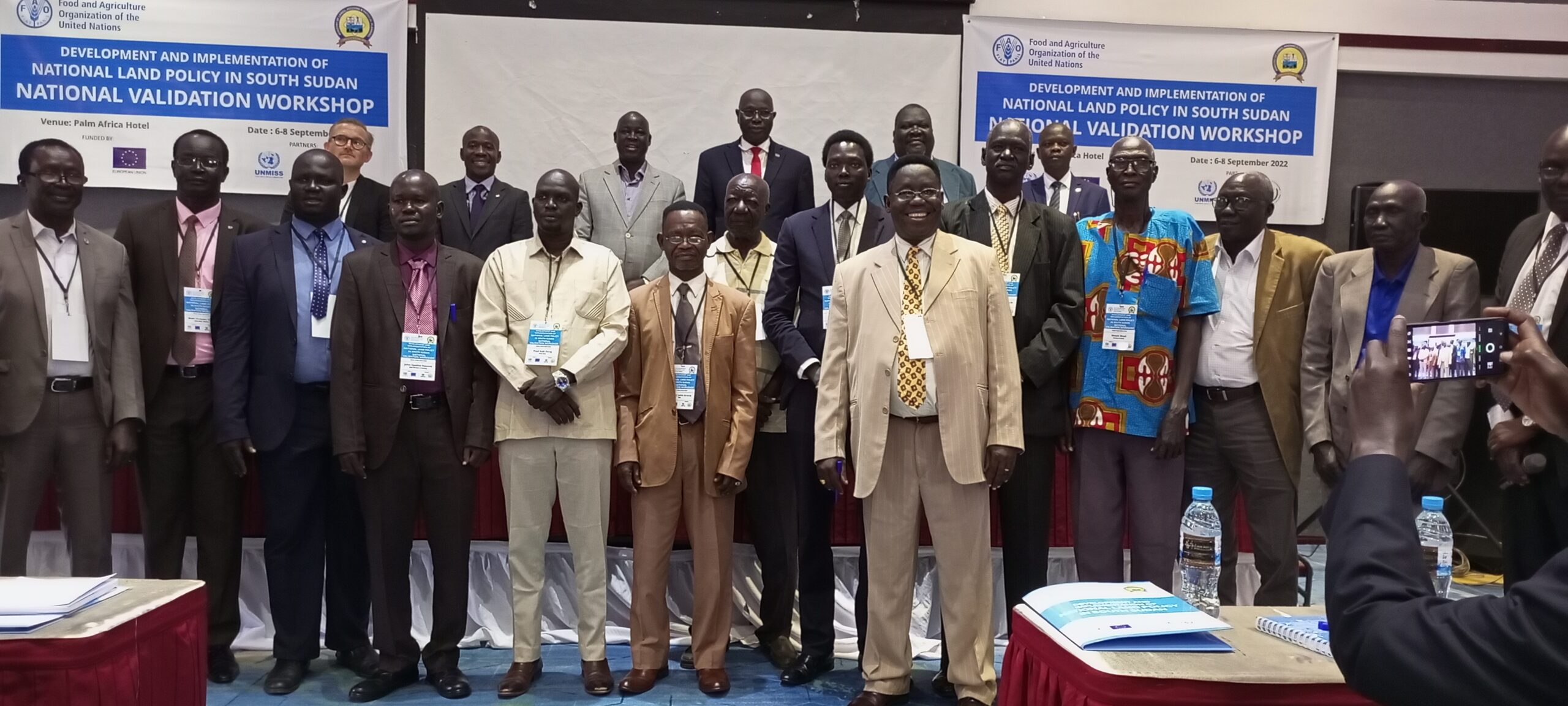The national Ministry of Land, Housing and Urban Development started the review of a draft policy to regulate land uses and governance in the country.
Dozens of delegates from the states and national level started the three-day workshop on Tuesday to seek their feedback on the policy.
The 43-page document known as draft of the National Land Policy 2022 sets out the national land management strategy which spells out government’s land objective and building principles for the finalization of the policy.
Chapter one and two of the document contain background information to the policy including the land sovereignty, its vision and goal.
While chapter three and four outline the proposed Land Policy statements and information on legislative development and reforms.
The final chapter contains the implementation methods and the role of government institutions.
“This validation workshop marks a significant milestone to our land policy development. As we all know that without land policy, we will not have a better investment,” said Michael Chiengjiek is the national Minister of Lands, Housing and urban Development.
“With the proper land policy, we will be now able to guide our investors, and we will also give hope to all our people including our developmental partners.”
Conflicts related to land grabbing and unlawful allotment of land are frequently reported in the capital, Juba.
Last weekend, Juba County authorities told Eye Radio that two army officers were arrested for illegally printing and selling fake land tokens to the public.
Another related incidents was four months ago when residents of Jondoru area, West of Juba clashed with land grabbers resulting in score injuries.
Several plot owners also fought with land grabbers in Khor William area, Garbo among others in the last three years.
Meanwhile, the workshop which concludes on Thursday, is expected to recommend programs for capacity development and innovations in land administration, and the need to strengthening coordination and improving land monitoring.
Upon completion of the review, the policy will be directed to the Council of Ministers for deliberation, and then to parliament for enactment into law.
Minister Michael Chiengjiek said the land policy will address issues of land grabbing in the major towns.
“It will be the only policy that will address all our issues including this rampant land grabbing which is actually becoming a cancer in our country.,” he said speaking at the opening session on Tuesday.
“Some people takes things for themselves, they are not even guided by any policy but with this policy at hand, we will be able now to deal with those lawlessness.”
“Those who are actually thinking that they can be everything in this country. So no one will be above the law once this land policy is passed.”
The Swedish government also welcomed efforts by South Sudan authorities to strengthen land management, saying which has been a contentious issue of conflict in the country.
Markus Larsson, the Program Specialist at the Swedish Embassy in South Sudan said strengthening the land management and governance is essential for development.
“Improvement of land governance is important in a country such as South Sudan where a large proportion of population depends on Agriculture,” Larsson said.
“The national land policy document will play a role in setting out the national land strategy and will help in the administration of land in South Sudan.”
The process of developing a land police was initiated by the Land Commission in 2006, with the conduct of study tours, workshops, public consultations and research.
The final review and adoption of the land policy was delayed due to the 2013 and 2016 conflicts though the legislative process started in 2017.

